Related Research Articles
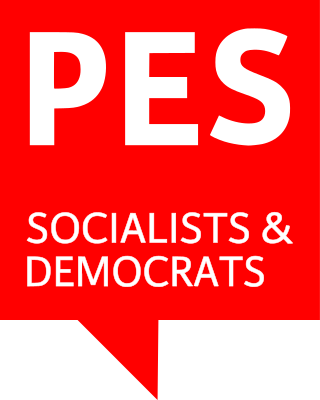
The Party of European Socialists (PES) is a social democratic European political party.

was a Norwegian politician and educator who served as the prime minister of Norway from 1972 to 1973. He became associated with the Christian Democratic Party and was elected to the Norwegian Parliament. As prime minister he led the cabinet that took over when Trygve Bratteli resigned in the wake of the first referendum over Norway's membership in the European Economic Community.

The Labour Party, formerly The Norwegian Labour Party, is a social democratic political party in Norway. It is positioned on the centre-left of the political spectrum, and is led by Jonas Gahr Støre. It is the senior party in a minority governing coalition with the Centre Party since 2021, with Støre serving as the current Prime Minister of Norway.
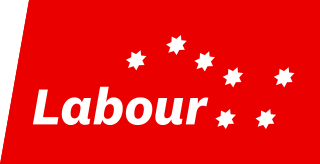
The Labour Party is a centre-left and social democratic political party in the Republic of Ireland. Founded on 28 May 1912 in Clonmel, County Tipperary, by James Connolly, James Larkin, and William O'Brien as the political wing of the Irish Trades Union Congress.

The Christian Democratic Party is a Christian-democratic political party in Norway founded in 1933. The party is an observer member of the European People's Party (EPP). It currently holds three seats in the Parliament, having won 3.8% of the vote in the 2021 parliamentary election. The current leader of the party is Dag Inge Ulstein.

The Socialist Left Party is a democratic socialist political party in Norway. Positioned on the left-wing of the political spectrum, it is opposed to European Union and the European Economic Area membership. SV supports a strong public sector, stronger social welfare programs, environmentalism, and republicanism. As of 2018, the party had 11,385 members; the number has steadily increased since a low point in 2015. The party leader is Kirsti Bergstø, who was elected on 18 March 2023

The Liberal Party is a social liberal political party in Norway. It was founded in 1884 and is the oldest political party in Norway. Despite its native name, the Liberal Party is positioned in the centre on the political spectrum, and usually cooperates much more with the right wing parties. It is a liberal party which has over the time enacted reforms such as parliamentarism, freedom of religion, universal suffrage, and state schooling.
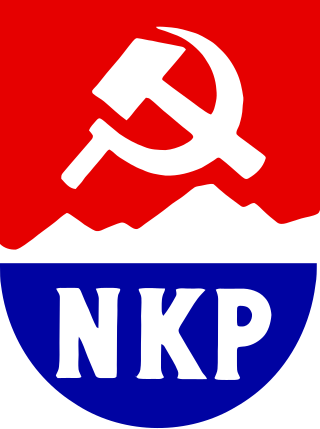
The Communist Party of Norway is a communist party in Norway.
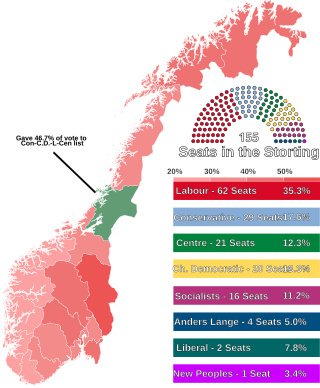
Parliamentary elections were held in Norway on 9 and 10 September 1973. The Labour Party remained the largest party, winning 62 of the 155 seats in the Storting.
Information Committee of the Labour Movement against Norwegian membership in the European Community was an internal organized opposition within the Norwegian Labour Party. AIK was founded in January 1972, ahead of the plebiscite on joining the European Economic Community. The appeal to found AIK came from Workers' Youth League and some trade unions. Its activities were financed by donations from trade union organizations and individuals. AIK had an office in Oslo. AIK was led by Bernt H. Lund.
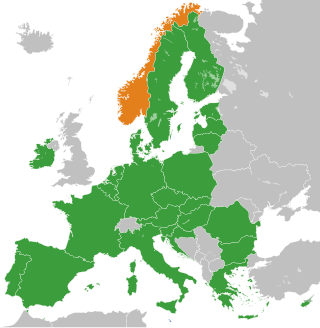
Norway is not a member state of the European Union (EU). However, it is associated with the Union through its membership in the European Economic Area (EEA), signed in 1992 and established in 1994. Norway was a founding member of the European Free Trade Association (EFTA) in 1960, which was originally set up as an alternative to the European Economic Community (EEC), the main predecessor of the EU. Norway had considered joining both the EEC and the European Union, but opted to decline following referendums in 1972 and 1994. According to the European Social Survey conducted in 2018, 73.6% of Norwegians would vote 'No' in a referendum to join the European Union. Norway shares land borders with two EU member states, namely Finland and Sweden, and maritime borders with a third, Denmark.

Berit Ås was a Norwegian politician, social psychologist, and feminist.
The Labour Party is a political party in the United Kingdom that sits on the centre-left of the political spectrum. The party has been described as an alliance of social democrats, democratic socialists and trade unionists. It is one of two dominant political parties in the United Kingdom, along with the Conservative Party. The party has been led by Keir Starmer since 2020, who became Prime Minister of the United Kingdom in July 2024. Since the 2024 general election, the Labour Party has been the governing party of the United Kingdom and the largest political party in the House of Commons, followed by the Conservative Party and the Liberal Democrats. As of 2024, there have been seven Labour prime ministers and fourteen Labour ministries. The party traditionally holds the annual Labour Party Conference during party conference season, at which debates and voting take place, and senior Labour figures promote party policy.

The Socialist Left Party of Norway was founded in 1975. Its history shows a long-term rise in political influence, resulting in part from its emergence from older left-wing parties, especially the Socialist People's Party. After initial political setbacks in the 1970s, the party reorganized and regained support, particularly under Theo Koritzinsky (1983–87) and Erik Solheim (1987–97). Support dropped in the 1997 parliamentary election but rose again by the 21st Century, thanks to the party's position as the only sizeable party to the left of the Norwegian Labour Party. Labour's move further to the right under Jens Stoltenberg also helped the party's rise. By 2005, the Socialist Left Party had joined the Labour and Centre parties in Norway's governing Red-Green Coalition. The party has been led by Audun Lysbakken since 11 March 2012.

The Jewish left consists of Jews who identify with, or support, left-wing or left-liberal causes, consciously as Jews, either as individuals or through organizations. There is no one organization or movement which constitutes the Jewish left, however. Jews have been major forces in the history of the labor movement, the settlement house movement, the women's rights movement, anti-racist and anti-colonialist work, and anti-fascist and anti-capitalist organizations of many forms in Europe, the United States, Australia, Algeria, Iraq, Ethiopia, South Africa, and modern-day Israel. Jews have a history of involvement in anarchism, socialism, Marxism, and Western liberalism. Although the expression "on the left" covers a range of politics, many well-known figures "on the left" have been Jews who were born into Jewish families and have various degrees of connection to Jewish communities, Jewish culture, Jewish tradition, or the Jewish religion in its many variants.

Parliamentary elections were held in Norway on 11 September 2017 to elect all 169 members of the unicameral Norwegian Parliament, the Storting. The non-socialist parties retained a reduced majority of 88 seats, allowing Prime Minister Erna Solberg's Conservative-Progress coalition to remain in government. The Liberal Party joined the coalition in January 2018 but it remained a minority cabinet until the Christian Democratic Party joined the coalition in 2019. The three largest centre-left parties won 79 seats. The Green Party retained its single seat, while the Red Party won its first ever seat.
Ole Wiig was a Norwegian civil servant and politician for the Labour and Socialist Left parties.
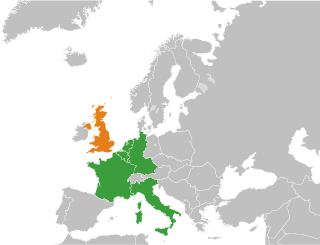
The accession of the United Kingdom to the European Communities (EC) – the collective term for the European Coal and Steel Community (ECSC), the European Economic Community (EEC) and the European Atomic Energy Community (EAEC) – took effect on 1 January 1973. This followed ratification of the Accession treaty which was signed in Brussels on 22 January 1972 by the Conservative prime minister Edward Heath, who had pursued the UK's application to the EEC since the late 1950s. The ECSC and EEC would later be integrated into the European Union under the Maastricht and Lisbon treaties in the early 1990s and mid-2000s.

Pasokification is the decline of centre-left, social-democratic political parties in European and other Western countries during the 2010s, often accompanied by the rise of nationalist, left-wing and right-wing populist alternatives. In Europe, the share of votes for centre-left parties was at its 70-year lowest in 2015.
References
- ↑ "Demokratiske sosialister (AIK) – Store norske leksikon". 2016-02-15. Archived from the original on 2016-02-15. Retrieved 2024-09-17.
- ↑ Haugen, Vilde (2024-09-15). "Berit Ås er død". NRK (in Norwegian Bokmål). Retrieved 2024-09-17.